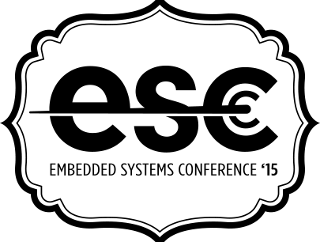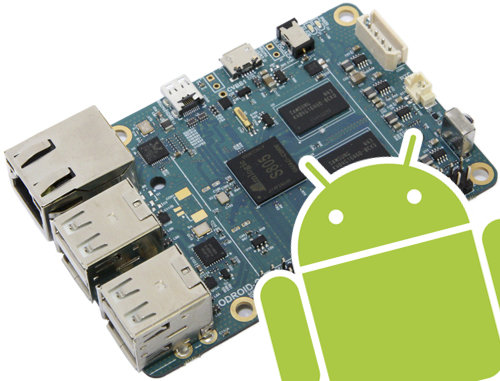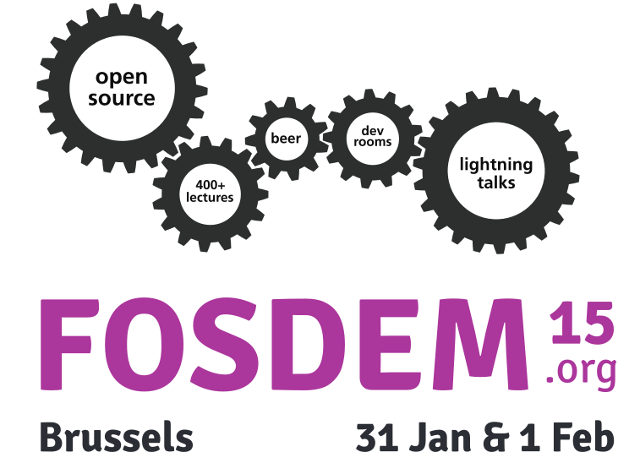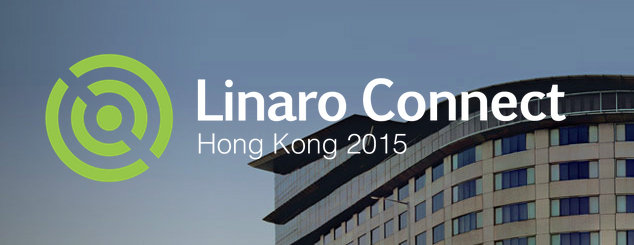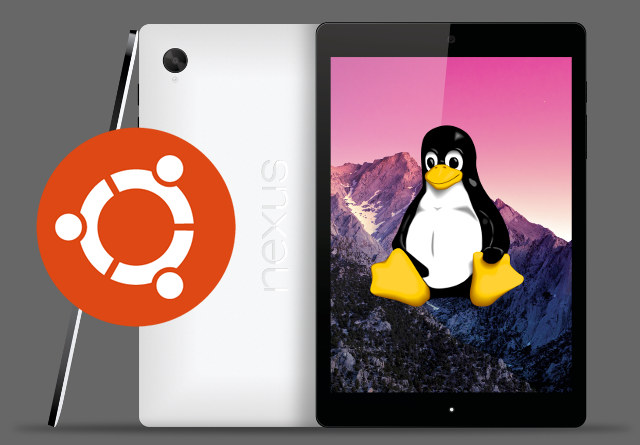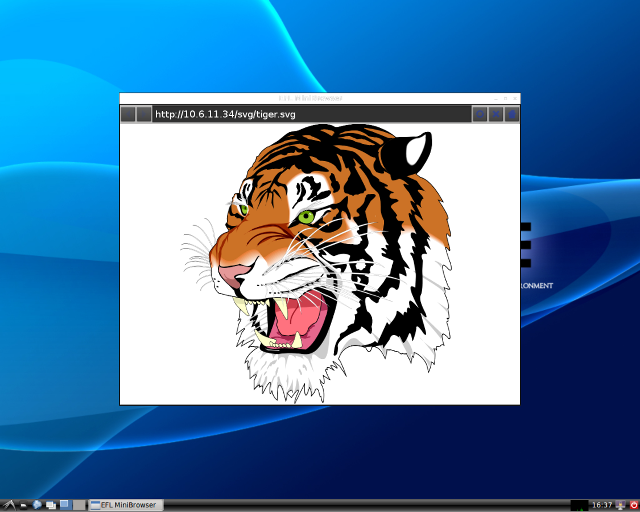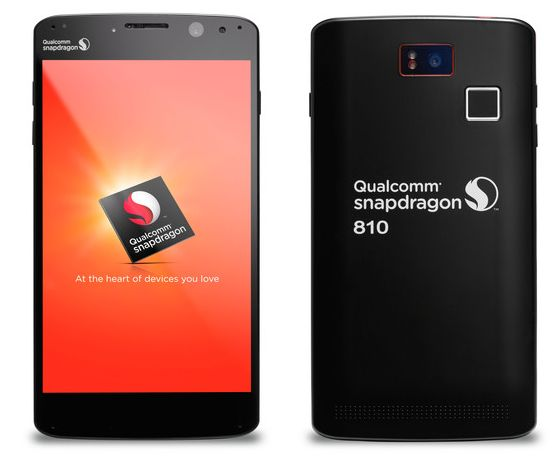The Embedded Systems Conference took the name “Design West” for a couple of years, but this year, there’s no mention of Design West, and the Embedded System Conference 2015 will take place in Boston, MA, US on May 6-7, 2015. The 2-day event will have a demo hall, and well as sessions divided into 8 tracks: Connected Devices and the IoT Embedded Software Design Hardware: Design, I/O and Interfacing Prototyping Embedded Systems Design Software: Design, Languages, & Quality Fantastical Theater Teardowns The full schedule has now been posted, and I’ll build a virtual schedule with some of the sessions provided. Wednesday May 6, 2015 8:00 – 8:45 – Understanding Google/Nest Thread by Michael Anderson, Chief Scientist, The PTR Group, Inc. The IoT will live or die based on its connectivity. In examining existing wireless protocols, Google/Nest found most of them lacking. In order to address the needs for low-power wireless […]
Android 4.4 Source Code Released for ODROID-C1 Board
ODROID-C1 development board was launched on December 10, 2014, and a few days later U-boot and Linux source code was released for this low cost Amlogic S805 board, but Android was only due later due to licensing issues. I’ve just noticed Hardkernel uploaded Android 4.4 source code to github at the end of February. The build instructions are provided on ODROID-C1 wiki, and there are quite straightforward. You’ll need to type four command lines to get the code in a working directory:
|
1 2 3 4 |
mkdir odroid-c1 cd odroid-c1 repo init -u https://github.com/hardkernel/android.git -b s805_4.4.2_master repo sync |
and three more to build an Android image:
|
1 2 3 |
source build/envsetup.sh lunch odroidc-eng make -j8 |
All relevant binary files (system, userdata, bootloader, kernel…) will be located in out/target/product/odroidc/ directory, and can be flash to your board via fastboot. Alternatvely, you can create an Android SD card image (out/target/product/odroidc/selfinstall-odroidc.bin) with:
|
1 |
make selfinstall |
That means developers will be able to easily customize source code for ODROID-C1 board, but they should also be able use this base […]
FOSDEM 2015 Schedule – January 31 – February 1 2015
FOSDEM (Free and Open Source Software Developers’ European Meeting) takes place every year during the first week-end of February. This year the developer-oriented event expects to bring over 5000 geeks to share ideas and collaborate on open source projects. Contrary to most other events, it’s free to attend, and you don’t even need to register, just show up. FOSDEM 2015 will take place on January 31- February 1 in Brussels. There will be 551 sessions divided into 5 keynotes, 40 lightning talks, 6 certification exams, and with the bulk being developer rooms and main tracks, divided into 7 main tracks this year: Languages, Performance, Time, Typesetting, Hardware, Security and Miscellaneous. I’m not going to attend, but it’s still interested to see what will be talked about, and I’ve concocted my own little virtual program out of the main tracks and developers’ rooms. There’s a few minutes overlap between some talks […]
Linaro Connect Hong Kong 2015 Schedule and Demos
Linaro Connect Hong Kong 2015 will take place on February 9 – 13,2015 in Hong Kong, and the organization has released the schedule for the five days events with keynotes, sessions, and demos. Each day will start with the keynote including speakers such as: George Grey, Linaro CEO, who will welcome attendees to Linaro Connect, and provide an update on the latest Linaro developments Jon Masters, Chief ARM Architect, Redhat, who will present Red Hat update and latest ARMv8-A demonstrations Dejan Milojicic, Senior Researcher & Manager, HP Labs Bob Monkman, Enterprise Segment Marketing Manager, ARM, will discuss about the impact of ARM in next generation cloud and communication network infrastructure Greg Kroah-Hartman, Linux Foundation Fellow, will introduce the Greybus Project (Linux for Project Ara modular phones) Warren Rehman, Android Partner Engineering Manager, Google The agenda also features sessions covering Android, ARMv8-A, Automation & Validation, Digital Home, Enterprise Servers, LAVA, Linux […]
How to Install Ubuntu ARM64 on Nexus 9 Tablet
HTC Nexus 9 is one of the first 64-bit ARM platform with powerful ARMv8 cores (e.g. not Cortex A53) that both commercially available, and relatively affordable at $399 to $599, at least significantly cheaper than the server boards such as Applied Micro X-C1. The tablet comes with Android 5.0 Lollipop, but for those of you who wish to have an ARM64 platform running Ubuntu or other 64-bit Linux operating systems, Ubuntu installation instructions provided by Ryan Houdek, Dolphin emulator developer, might come handy, especially it won’t affect your Android installation provided you have already unlocked your bootloader. The instructions are fairly long so I won’t reproduce them all here, so I recommend you check the detailed instructions on XDA, but the short summary below may give an idea of the amount of work needed: Install dependencies such as Aarch64 toolchain:
|
1 |
sudo apt-get install gcc g++ git gcc-4.9-aarch64-linux-gnu g++-4.9-aarch64-linux-gnu |
Build a initramfs with buildroot. You’ll need to enable […]
TyGL OpenGL ES 2.0 Backend for WebKit Speeds Up Web Rendering by Up to 11 Times
ARM, Szeged University in Hungary, and Samsung Research UK have been working on TyGL, a new backend for WebKit accelerated with OpenGL ES2.0, and developed and tested on ARM Mali-T628 GPU found in Samsung ARM Chromebook. It will typically provide 1.5 to 4.5 times higher performance, but in the best cases, it can achieve up to eleven times the performance of a CPU-only rendered page. The key features of TyGL include: Web rendering accelerated by GPU – Batching of draw calls delivers better results on GPUs. TyGL groups commands together to avoid frequent state changes while calling the Graphics Context API. Automatic shader generation – TyGL generates complex shaders from multiple shader fragments, and ensures the batches fit into the shader cache of the GPU. Trapezoid based path rendering – Work in progress. It will leverage GPU capabilities such as the Pixel Local Storage extension for OpenGL ES. No software […]
Intrinsyc Introduces Snapdragon 810 Powered Mobile and Tablet MDPs, DragonBoard Development Kit
Intrinsyc has recently announced availability for three development platforms based on Qualcomm Snapdragon 810 ARM Cortex A53/A57 processor, namely a smartphone Mobile Development Platform (MDP), a tablet MDP, and a DragonBoard development kit integration Open-Q 8094 system-on-module, making these one of the first ARM64 development platforms available to individual developers, or at least small software development companies (approved by Qualcomm). All three platforms will run Android 5.0 Lollipop. Intrinsyc Snapdragon 810 MDP Smartphone Intrinsyc MDP/S specifications: SoC – Qualcomm Snapdragon 810 (8994) 64-bit octa-core processor with 4x Cortex A57 cores, 4x Cortex A53 cores, Adreno 430 GPU, and Hexagon V56 DSP System Memory – 3 GB LP-DDR4 Storage – 32 GB eMMC 5.0 micro SD slot (under battery door) Display – 6.17” QHD (2560×1600) 490ppi, 10-finger multi-touch capacitive touchscreen Video Output – micro HDMI type D Audio Headset jack with ANC support 8 microphones (2 analog/ 6 digital) with support […]
Mediatek Releases Android SDK with APIs for HotKnot, Video & Image Processing, Multi-SIM, etc…
Mediatek seems motivated in getting involved with maker and open source communities. Thanks to its works on Android One with Google, the company recently released the Linux kernel source for MT6582 processor, and with a separate endeavour, launched Mediatek Labs bringing LinkIt ONE platform for IoT and wearables to market, as well as a preview release of an Android SDK for its mobile processors. Features of the SDK includes: Set of libraries for MediaTek feature APIs with full API documentation. x86 MediaTek emulator based on a reference implementation of an Android 4.4.2 (KitKat) device powered by a MediaTek chip, adding capabilities to test and debug telephony and multi-SIM features, a vibrator indicator and a hot-swappable SD card. Customized version of the DDMS (Dalvik Debug Monitor Server), which adds support for testing telephony features, such as plugging and unplugging a headset, sending telephony commands to test call and SMS features, etc… […]


